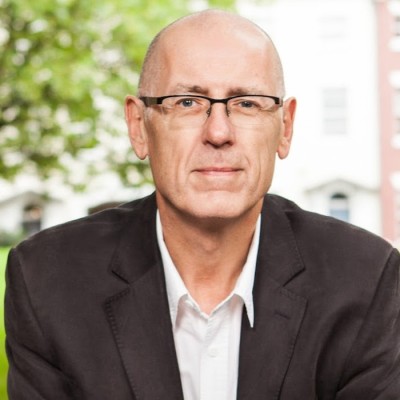Boom Radio, a commercial radio station targeting Baby Boomers, was launched in the UK during the shutdown. The station was created by Phil Riley and David Lloyd, who believed that BBC Radio 2 was creating a gap in the market by targeting a younger audience over 35. The station began operations in February 2021 and is available across the UK via DAB, the internet, and smart speakers. Presenters include David Hamilton, Graham Dene, and David Jensen. Boom Radio features music from the 1950s to the present, with a wide range of material by main performers. The station has received positive feedback from listeners, holding the number one spot in the Rajar rankings for commercial radio due to its verified “time spent listening.”
A brand-new radio station with a focus on Baby Boomers has launched in the UK. An opportunity for a new commercial radio station to compete with the incumbents was spotted by radio industry veterans Phil Riley and David Lloyd, who created the station. It was introduced during the shutdown, and it has been a huge success. Phil Riley was interviewed by CEO Today to learn more.
What is Boom Radio, and why did you decide to start the business?
My business partner David Lloyd, who is one of the most well-known programmers in commercial radio, believed that BBC Radio 2 was creating a gap in the market by turning to a younger audience in order to reach those over 35. He inquired as to my opinion as to whether there was a commercial possibility to target elderly listeners such as ourselves. To support the proposition, I ran a financial prediction. David wrote me this letter in July of 2020, after the first shutdown had ended. By October, we were fundraising!
A commercial radio station called Boom Radio targets the Baby Boomer generation, which includes those born between 1946 and 1964. We began operations in February 2021 and are currently available across the UK via DAB, the internet, and smart speakers. Boom Radio may be played by asking Alexa to do so. David Hamilton (ex-BBCR1/R2), Graham Dene (ex-Capital/Smooth), David Jensen (ex-Luxembourg/BBCR1), and a number of other Baby Boomer stars are among the presenters on our program. People in their 60s and 70s who are dissatisfied with BBC Radio 2 make up our target demographic.
Our music selection is uncommon for commercial radio since we feature music from the 1950s to the present, but the most of it is from the 1960s and 1970s. We play a wide range of material by our main performers, going well beyond merely their most well-known tunes. We resemble early commercial radio stations, pirate radio stations, and BBCR1/R2 in certain aspects, and our listeners have responded well. We already hold the number one spot in the rajar rankings for commercial radio because to our verified “time spent listening”!
What effect did it have on the market in its first year and how have you built the company in such a cutthroat sector?
We never solicited money from strangers; even then, it was only from people we knew personally and professionally in the media who might occasionally provide a hand or offer guidance. In order for us to function independently, we did not request assistance from any of the significant industry groupings.
However, this implies that we do not have significant funds, which calls for a wise use of our marketing resources. We have invested a minimal amount on targeted television and participated in several media partnerships. Our main areas of focus have been PR and social media. We can successfully target those over 60 because Facebook is used by two-thirds of this demographic.
We had no idea this would result in a monthly audience of about 400 thousand listeners, but it has been a terrific start.
You’ve worked with some of the biggest companies throughout the course of your extensive career in the UK radio business. How tough was it to launch Boom Radio? How does operating a startup differ from running a big business?
What we are presently achieving was unimaginable a few years ago. To run a radio station, one either had to spend several million pounds purchasing an existing business, or “win” a license from the regulator (OFCOM) on an FM frequency. Operators may now create a station if they have a good idea thanks to the development of DAB with its greater capacity and online streaming. Starting a company from scratch was therefore an exciting and dangerous experience that was very different from working in giant boardrooms. I would wholeheartedly support it!
I think radio is the finest business in the world, and I’m glad I’m still doing it.
The biggest barrier to going live was the fact that we launched amid a pandemic. Inevitably, a “remote” operation had to be set up, with presenters holding their shows in sheds, abandoned rooms, and attics. This has ultimately influenced who we are. We would not have been able to recruit talent of this kind if we had mandated that our team operate in opulent London studios. Near or in semi-retirement is the majority. Working from home offered them a new lease on life, which was a godsend. Three of our presenters are from Spain, while the others are from all throughout the nation.
David and I have never, in our opinion, been closer to our viewers than we are right now that we’re in charge of a sizable group. We are really close to the action because to Boom’s flat, open design. We often review the data from our minute-by-minute streaming, we frequently get comments on Facebook, we already have a database of close to 10,000 members, and they gladly participate in our regular surveys. They continuously tell us how we have brightened their lives by playing music they thought they would never hear again and by giving them the camaraderie they thought they had lost from the larger stations. Their reaction has been fantastic. It has been tremendously satisfying to feel that we are still having an impact at this stage in our careers.
What does Boom Radio’s future in the next ten years hold?
“Still busy living” is our creed, and our station’s internal slogan is “helping our listeners live their best lives.” I hope we’ll still be working together in five years. We still have a few years left to live as David is 61 and I am 62.
One million listeners is our long-term goal for Boom, and I think we’re already halfway there. We are conscious that it will be challenging since you have to win them over one at a time.
We want to keep enjoying ourselves while working toward these goals. I think radio is the finest business in the world, and I’m glad I’m still doing it.
For further information
You can listen Boom Radio or contact me on LinkedIn
We gather unique business case studies from all over the internet, to inspire you with a wide range of business ideas. This case study was supervised by our team and it definitely caught our interest. You can find other inspiring business stories here.







